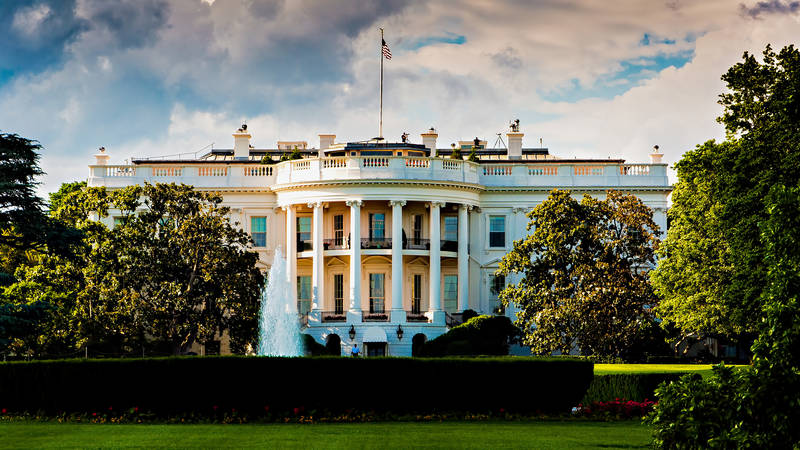Elected officials throughout history have had their rude and rowdy moments. One U.S. vice president famously showed up drunk to his own inauguration.
When President Abraham Lincoln campaigned for his second term, the Civil War had been raging for years, dividing the country, and his chances for reelection did not look promising. His opponent, Democrat George B. McClellan of New Jersey, billed himself as the “peace candidate” who would bring a speedy end to the war.
Instead of keeping Vice President Hannibal Hamlin as his running mate, Lincoln, a Republican from Illinois, picked Democrat Andrew Johnson of Tennessee for a “National Union Party” ticket intended to appeal to the Southern states. Military victories by Union forces leading up to the election helped to turn public sentiment in Lincoln’s favor, as did Johnson’s addition to the ticket: He won reelection with 55 percent of the popular vote.

America’s Only Park Ranger President
Of all the people who have served as U.S. president to date, only one also worked as a national park ranger. Can you name this ranger-in-chief?
See more ›What ensued on March 4, 1865, however, was one of the most unusual inaugurations in U.S. history. Johnson was suffering from typhoid fever and had been medicating himself the night before and the morning of the ceremony with a common treatment of the day: whiskey. He reportedly arrived red-faced and sweating as Hamlin swore him in. He then took the podium to issue what is customarily a short, polite speech introducing the president-elect. The speech, however, was not short or polite.
According to the Senate record of the event, Johnson “rose unsteadily to harangue the distinguished crowd about his humble origins and his triumph over the rebel aristocracy.” Hamlin reportedly tried, at one point, to cut the speech short by pulling on Johnson’s coattails, but to no avail. The rambling, slurred diatribe eventually ended after Johnson dramatically waved a Bible in the air and kissed it. Or, in the words of Sen. Benjamin Butler of Massachusetts, “slobbered the Holy Book with a drunken kiss.”
It didn’t quite end there, however. In addition to giving his speech, it was also Johnson’s duty to swear in the new senators, but he was too drunk and disoriented for this relatively easy job. A clerk eventually completed the task and Johnson was escorted out.
According to Sen. Zachariah Chandler of Michigan, “I was never so mortified in my life, had I been able to find a hole I would have dropped through it out of sight.”
Secretary of the Senate John Forney later recalled: “I can never forget President Lincoln’s face as he came into the Senate Chamber while Johnson was delivering his incoherent harangue. … He took his seat facing the brilliant and surprised audience, and heard all that took place with unutterable sorrow.”
Lincoln and Johnson wouldn’t work together for long, however. Lincoln was fatally shot just six weeks later, on April 14. Johnson was roused from sleep on the morning of April 15 to take part in a much smaller and quieter inauguration than the one he had attended the month before, becoming the nation’s 17th president.
Even without these dramatic swearings-in, Johnson’s lengthy political career was noteworthy in many other ways.
Johnson was a tailor by trade who was elected to numerous political offices without ever attending any formal schooling. He served as an alderman, mayor of Greeneville, governor of Tennessee, state representative, state senator, U.S. representative and U.S. senator before Lincoln chose him as his running mate. He was the only senator from the Confederacy to remain in office after his state seceded from the Union. He was the first president to be impeached. And he was the only former president to return to the Senate, albeit briefly, when he was reelected to federal office during the last few months of his life.
Stay On Top of News
Our email newsletter shares the latest on parks.
Johnson was also notorious for opposing civil rights measures during his presidential term, pardoning most white Southerners, denying blacks a role in the country’s transition from slavery, and allowing “black codes” in former Confederate states that were designed to deny rights and privileges, such as voting and public education, to the newly emancipated population. He also vetoed bills that would have improved the condition of freed men and women, including the Civil Rights Act of 1866, which provided basic rights to formerly enslaved people, and the Freedmen’s Bureau Bill of 1866, which helped formerly enslaved people obtain food, housing, health care and other necessities during the Reconstruction Era. Congress eventually overrode Johnson’s vetoes to pass versions of both bills.
Despite the controversies surrounding Johnson’s tenure in the executive branch, he was a self-made man who rose from poverty to the country’s highest office. Learn more about this singular historic figure and his continuing political influence at the Andrew Johnson National Historic Site, which preserves two of the president’s former homes, a replica of his birthplace, and his grave and family cemetery in Greeneville, Tennessee.
About the author
-
 Jennifer Errick Associate Director of Digital Storytelling
Jennifer Errick Associate Director of Digital StorytellingJennifer co-produces NPCA's podcast, The Secret Lives of Parks, and writes and edits a wide variety of online content. She has won multiple awards for her audio storytelling.